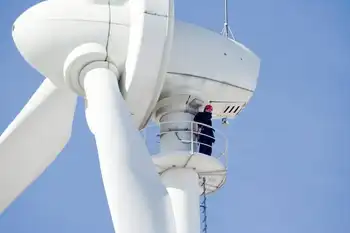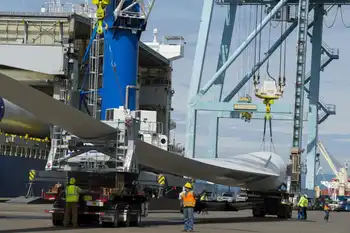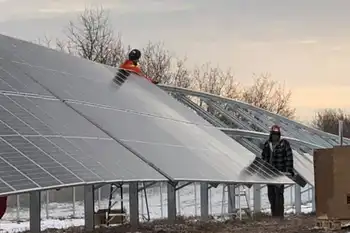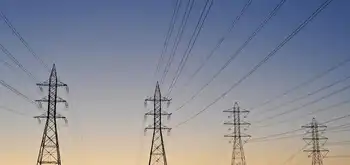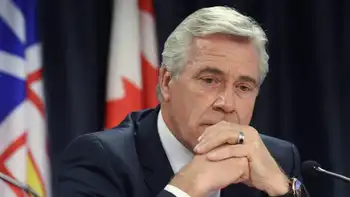New IAEA chief elected
By Xinhua News
Arc Flash Training CSA Z462 - Electrical Safety Essentials
Our customized live online or in‑person group training can be delivered to your staff at your location.

- Live Online
- 6 hours Instructor-led
- Group Training Available
The election did not witness a smooth voting process. Due to apparent differences on who should head the agency, its board conducted long multilateral and bilateral consultations as well as two secret formal ballots before Amano was finally elected.
The IAEA General Assembly is scheduled to approve Amano's appointment in September, and he will succeed the incumbent IAEA chief Mohamed ElBaradei on December 1.
The IAEA, founded in October 1957, has now 146 members with its headquarters based in Vienna, Austria.
Since its establishment, the agency has considered nuclear verification and safeguard, nuclear security, and nuclear technology transfer as the three pillars of its work.
ElBaradei, from Egypt, first served as the agency's chief in 1997, and was re-elected in 2001 and 2005. His third term would be due at the end of this year. Last year, ElBaradei stated he would not serve a fourth term.
During ElBaradei's term, Iraqi, Korean and Iranian nuclear issues have been under international focus successively, while Libyan and Syrian nuclear-related issues have also aroused great concern in the international community.
A series of events have made ElBaradei the most eye-catching director general ever.
Due to his outstanding contribution to the prevention of nuclear proliferation, ElBaradei and the agency shared the 2005 Nobel Peace Prize.
With the development and changes of the international situation, how to deal with the contradiction between non-proliferation and peaceful use of nuclear power has become the biggest challenge facing the IAEA.
On non-proliferation, the IAEA is facing demanding tasks such as clarifying the outstanding issues concerning the Iranian nuclear program, completing the verification of the Syrian suspected facility, and bringing the Democratic People's Republic of Korea (DPRK) back to the Treaty of Non-Proliferation of Nuclear Weapons.
In addition, with the increasing security problem of the energy supply and the exacerbating global warming, the nuclear power, as one of the alternative energy sources, is receiving more and more attention.
In 1986, the accident at the Chernobyl nuclear power plant in the Soviet Union had a tremendous impact on the world's nuclear power development. In more than 20 years afterwards, the United States did not construct any new nuclear power plant, and Germany's new plant failed to be put into operation due to strong anti-nuclear forces in Europe. Some countries — including Austria — still refuse to develop nuclear power at all.
Now many countries are reconsidering nuclear power. The United States has planned to build a new nuclear power station, while some European countries including Britain, Italy and France also have intentions to expand the use of the clean energy.
Meanwhile, more and more developing countries, such as Indonesia, Malaysia, even Vietnam and the Philippines, are beginning to show interest in the nuclear power.
With this trend, the risk of abusing nuclear materials and nuclear technology and in turn the risk of nuclear proliferation are also on the rise.
Therefore, the IAEA is facing the task of how to guarantee nuclear security and effectively prevent nuclear proliferation while actively promoting the peaceful use of nuclear energy.
However, on this issue, developed and developing countries have their own different focuses. Developed countries requested the IAEA to assume the tasks of non-proliferation and safe keeping, emphasizing the responsibility and strict restrictions of developing and utilizing nuclear power, while developing countries claimed the IAEA should, besides advocating non-proliferation, also focus on assisting developing countries in the development and peaceful use of nuclear energy under equal conditions.
On the future budget of the IAEA, developed countries such as the United States and Britain required the agency to achieve a zero-growth budget, while developing countries demanded the agency's budget should actually guarantee the need especially in the areas of development assistance.
On the surface, the election of the new director general seems to be a race between Japanese Amano and South African Abdul Minty, but actually it reflected the absence of mutual trust between developed and developing countries, as both sides each were seeking a "spokesperson" for their own interests.
Therefore, how to not only promote the peaceful use of nuclear energy but also comprehensively and effectively prevent nuclear proliferation on a fair and equal basis will be the core issue to be solved by the IAEA in the future.






